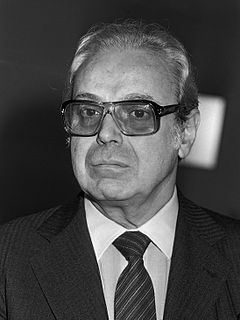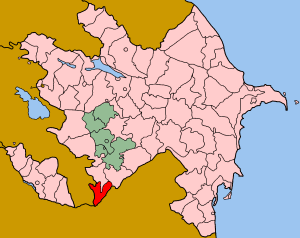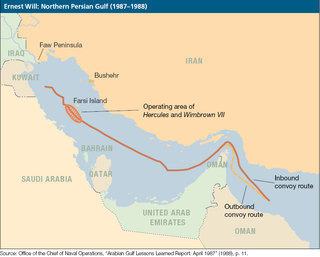| UN Security Council Resolution 522 | |
|---|---|
Iran-Iraq War | |
| Date | 4 October 1982 |
| Meeting no. | 2,399 |
| Code | S/RES/522 (Document) |
| Subject | Iraq-Islamic Republic of Iran |
Voting summary | 15 voted for None voted against None abstained |
| Result | Adopted |
| Security Council composition | |
Permanent members | |
Non-permanent members | |
United Nations Security Council resolution 522, adopted unanimously on 4 October 1982, after recalling Resolution 479 (1980) and Resolution 514 (1982), the Council called for an immediate ceasefire between Iran and Iraq, calling for the withdrawal of both sides to their internationally recognised borders.

United Nations Security Council resolution 479, adopted unanimously on 28 September 1980, after reminding Member States against the use of threats and force in their international relations, the Council called upon Iran and Iraq to immediately cease any further uses of force and instead settle their dispute through negotiations.

United Nations Security Council resolution 514, adopted unanimously on 12 July 1982, after recalling Resolution 479 (1980) and noting the mediation efforts by the Secretary-General, Organisation of the Islamic Conference and the Non-Aligned Movement, the Council expressed its deep concern at the prolonged conflict between Iran and Iraq.

A ceasefire, also called cease fire, is a temporary stoppage of a war in which each side agrees with the other to suspend aggressive actions. Ceasefires may be declared as part of a formal treaty, but they have also been called as part of an informal understanding between opposing forces. A ceasefire is usually more limited than a broader armistice, which is a formal agreement to end fighting. Successful ceasefires may be followed by armistices, and finally by peace treaties.
Contents
The Council recognised that Iraq had agreed to implement Resolution 514, and urged Iran to do the same, which was pressing its advantage. [1] The resolution also weakened Iran's right of self-defense. [1]
The right of self-defense is the right for people to use reasonable force or defensive force, for the purpose of defending one's own life (self-defense) or the lives of others, including –in certain circumstances– the use of deadly force.
The resolution went on to affirm the necessity of implementing United Nations observers to the region to monitor the ceasefire and withdrawal, calling on all other Member States to refrain from actions that would prolong the conflict. Finally, Resolution 522 requested the Secretary-General Javier Pérez de Cuéllar to report back to the Council on attempts to implement the resolution within seventy-two hours.

Javier Felipe Ricardo Pérez de Cuéllar de la Guerra KCMG is a Peruvian diplomat who served as the fifth Secretary-General of the United Nations from January 1, 1982 to December 31, 1991. He ran unsuccessfully against Alberto Fujimori for President of Peru in 1995 and following Fujimori's resignation over corruption charges, he was Prime Minister and Minister of Foreign Affairs from November 2000 until July 2001. In September 2004, he stepped down from his position as Peru's Ambassador to France, where he formerly resided. He is also a member of the Club de Madrid, a group of more than 100 former Presidents and Prime Ministers of democratic countries, which works to strengthen democracy worldwide. At the age of 99 years, 71 days, Pérez de Cuéllar is currently both the oldest living former Peruvian prime minister and Secretary General of the United Nations.












